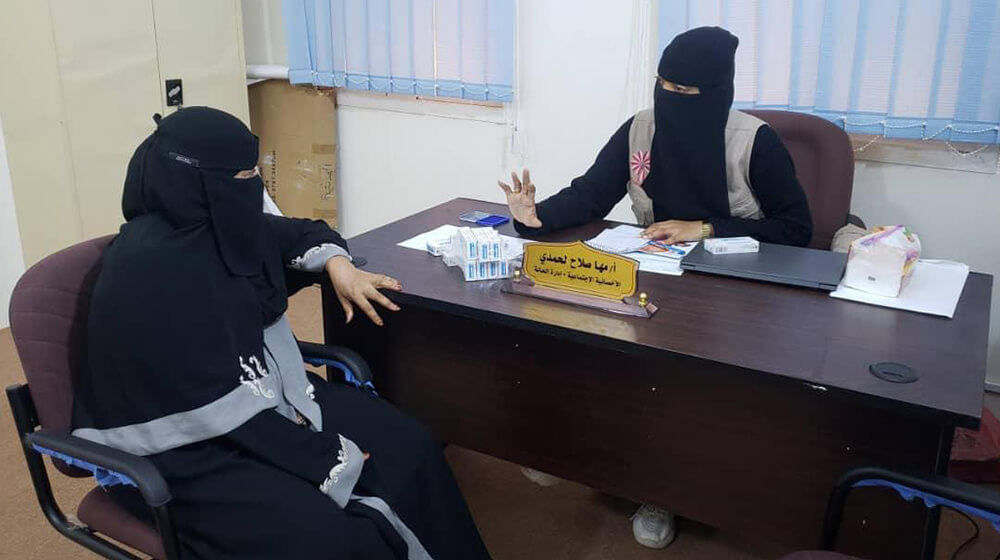UNFPA Offers Support for Yemen Survivors of Female Genital Mutilation

“I lost my baby in front of my eyes,” said Safia*, a young woman from a remote village in Yemen.
Safia’s family arranged her marriage for her 21st birthday. A year later, she was pregnant. “The news brought a lot of joy,” she told UNFPA.“We were very excited to become parents.”
Around the world, new mothers and fathers receive advice – solicited or not – from their families and communities on navigating parenthood. Two months before her daughter was due, Safia’s mother-in-law encouraged the practice of female genital mutilation (FGM), a brutal human rights violation where a girl’s external genitalia is cut and removed.
“My mother-in-law insisted it would allow my child to lead a moral life,” Safia said.
Three days after Safia had given birth, her mother-in-law visited with tools to perform FGM on the newborn. The baby screamed in pain and began bleeding profusely. She did not survive.
“Her death not only killed my joy of being a mother, but killed me a thousand times over,” Safia said.
Millions at Risk of Female Genital Mutilation
An 200 million women and girls worldwide have survived some form of FGM.
Across Yemen, one in five women have undergone FGM and nearly all survivors were cut within the first week of their life. Where Safia lives, the prevalence rate of FGM is a staggering 80%.
Various factors perpetuate this harmful practice. Families face societal pressure to adhere to cultural norms, fear of social exclusion, and are often unaware of its detrimental effects. Despite ample evidence to the contrary, many families like Safia’s believe the procedure is religiously mandated. Often women who have undergone FGM support continuing the tradition.
However, Safia, herself a survivor of female genital mutilation, had reached her breaking point. When she learned she was pregnant with another girl, she resolved to spare her daughter from this damaging practice.
“I blamed myself for not doing anything to save my daughter, and began to question why she was killed in this brutal way for being a girl,” she said.
Community Voices Against Violations in Yemen
Safia’s neighbors broke the cycle and refused to have their daughter cut. Inspired by their resolve, Safia turned to them for advice. The fellow mother shared that her husband and in-laws had renounced the practice after attending an FGM awareness session at a UNFPA youth center. They learned about the dangers of the practice and were able to make an informed decision not to cut their daughter.
A recent study across Yemen’s coastal regions revealed that almost two-thirds of women and half of men lacked awareness of the harmful effects of female genital mutilation.
Encouraged by her husband, Safia’s mother-in-law agreed to accompany them to awareness session.“The three of us listened for over three hours about the physical, mental, and social consequences of female genital mutilation,” she said. “We became aware of how harmful it is and were fully convinced that it should not be practiced.”
UNFPA works around the world to raise awareness of the harms of FGM and encourage families and communities to abandon this harmful practice. A recent campaign in Safia’s community successfully reached over 400 people with information in just eight days.
“I saved the life of my second daughter,” Safia said. “With this awareness, I believe I can help spare the lives of many innocent girls.”